Re-posting an article I wrote for National Girls Collaborative Project, because I’ve added fun links in this version! You can read the original article published on National Girls Collaborative Project Blog (submitted by Greta Carlson on April 29, 2016 – 2:20 pm)
Contributed by Allison Lee
Growing up I never had a clear picture of what I wanted to become. Inspecting insects, creating mud-pies and gazing at the stars were childhood past times and as I grew into a teenager I embraced traveling and learning more about nature. I didn’t immediately connect all of these interests with becoming a scientist. My parents were not scientists. No one in my family had degrees beyond a high school diploma. I remember wondering if I even needed to go to college. I spent years frustrated by my lack of vision; finding the dream job I felt contained all of my passions was a struggle.
By the time I turned 30, I had traveled to all seven continents as a Biologist studying a diversity of lifeforms from microscopic algae, to songbirds, parrots, mice, squirrels, big cats, and whales. Obviously I figured something out! Life is funny that way. A hunch paired with the right blend of curiosity, odd jobs, research-focused vacations, volunteer opportunities, frugal living, and luck delivered me to my dream career.
Finding my passion
In my high school senior yearbook I wrote that I wanted to be an astronaut. I thought astronauts traveled the most of anyone on Earth. Inspired, I researched the degrees earned by NASA’s astronauts and found an overwhelming proportion had studied science. I decided to major in biology and geology at the University of Washington. It wasn’t until sophomore year when I had the epiphany that biology was my passion.
The scope of biology is broad and I wanted to learn as many disciplines as possible. Senior year, I signed up for an internship in neuroscience at the Allen Institute for Brain Science and found a part-time lab job in the Immunology Department taking care of a mouse colony. I started learning molecular techniques and computer programs, using fancy pieces of equipment, and doing those things called PCRs and Southern Blots. I wasn’t entirely sure what was going on – but I was doing SCIENCE!
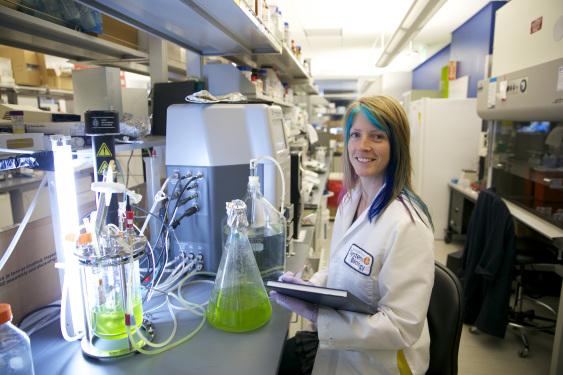
Questioning my interests
After I graduated with my Bachelor of Science in Biology, I continued to work full time in the immunology lab. Two and a half years passed. Restlessness set in and I began to wonder if maybe I just didn’t like science anymore. I knew one next possible move was to go to graduate school, like many of my college peers, but I didn’t know what I wanted to commit to studying. I wasn’t inspired by my neurobiology or immunology experiences. I hated doing computer work. I felt stuck. So I did the thing you’re never supposed to do: I quit.
The next two months were spent feverishly searching job boards, institute websites, and email listservs. Because of my interest in many aspects of biology, I didn’t know where to focus my efforts. Regardless, I felt optimistic that my Dream Job was out there. A job posting for a field technician conducting songbird research caught my eye. I didn’t know much about birds, but I convinced the interviewer I could learn bird songs because I learned other languages easily and had been playing music for 15 years. It worked! Every morning I woke at 4:00 AM to get to the field site before the sun rose. I got paid to be outside tromping through the woods looking for birds. It was during these quiet twilight mornings, outside in nature, that I realized THIS was my dream job. I never wanted it to end.
But, as is the nature of seasonal fieldwork, it did. Five months later, I found myself once again unemployed. Turns out, seasonal work is the usual for field technicians. I knew that field biology wouldn’t be the most lucrative career choice, but I felt empowered to commit myself to studying the environment – whether I got paid for it or not.
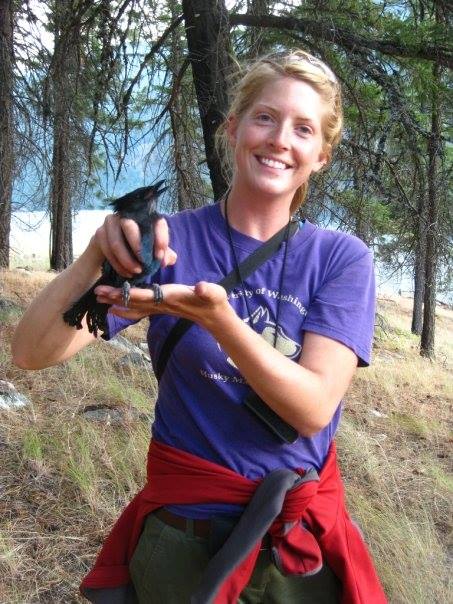
The sacrifices
I went on a quest to find as many wildlife jobs as I could. Later that year, I studied forest fire treatments on threatened squirrel populations; I studied the breeding behaviors of endangered parrots in Mexico. Each time, the pay was minimal to none, so I worked side-gigs as a professional baker and bartender to pay my bills. While I was happy to gallivant around the woods for science, working for free wasn’t exactly the dream job I had in mind. I was turning into a poor disgruntled vagabond.
In an effort to gain a sustainable salary, I left fieldwork and went back into the lab to begin a project at the Institute for Systems Biology (ISB) investigating the genetic responses of algae to climate change and ocean acidification. I knew nothing about marine systems but I had skills in the lab and stellar references. Part of me thought leaving the field was a mistake but as I gained exposure to the natural world within a molecular science framework, I saw the impact of a systems approach to research and I was hooked. I still missed going out into nature every day, but I kept an open mind and a positive attitude.
Over six years have passed since I went back into the lab and the job has given me more opportunities than I could have imagined. What started off as a lab job performing controlled experiments on algae has evolved into a field job sampling algae from the natural environment. This work has led me all over the Puget Sound area of Washington, as well as to Hawaii, and even as far as Antarctica!

The best of both worlds
As a field scientist working indoors, I still daydreamed about the rainforests. On the weekends, I’d flee to the mountains. With a bit of money saved up, I decided to satisfy my restless soul. I used my vacations to help conduct research on voluntourism projects, like Earthwatch. From aboard a restored rubber boom era steamship, I spent three weeks studying biodiversity in the Amazon jungle. I realized I could save my money, use my vacation time to get out in the field, and still have a paying job in science. It was the best of both worlds!
The plan is working. I’ve volunteered on projects studying macaws with Tambopata Research Center in Peru, biodiversity in the Amazon, big cats in Africa, and whales in Mexico. I love volunteering so much I do it at home too, giving time to local conservation organizations like Conservation Northwest. We work to mitigate human wildlife conflicts in the migration corridors of the Cascades. I also get kids outdoors with the Sierra Club, and spend time with kids through Ocean Inquiry Project, the Woodland Park Zoo, and Pacific Science Center. I speak about careers in environmental science with students to convey my passion for nature and inspire another generation to care about protecting the biodiversity on Earth.

What’s in a dream?
I’ve come to believe the dream job doesn’t exist for me, and I don’t think it’s beneficial to maintain that perspective. I have too many passions – too much wonder for the potential of science in the world. I find fulfillment in contributing to important work for the environment and interacting with innovative collaborative thinkers. I benefit from an extremely flexible schedule, live in the city, and travel to amazing places through work. And I’ve been lucky to have many other amazing experiences volunteering with local and international conservation organizations. I am continually seeking as many opportunities as I can find, but this time things are different; I’m no longer looking for the Dream Job, I am creating the Dream Career.
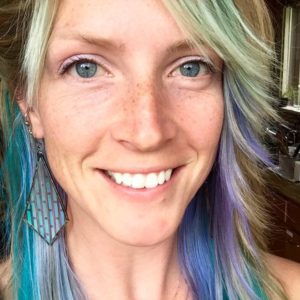
Allison Lee is a Seattle native who loves coffee, talking to people, and learning new things. When she’s not doing science you can catch her ultra-running, cycling, hiking in nature, traveling, and burning the candle at both ends. At age 32, she has finally realized the differences between working a job and building a career. This summer she will begin a Masters degree in Marine Biodiversity and Conservation at Scripps Institution of Oceanography in San Diego California with the hopes of following another curiosity: the social, economic and policy side of marine science. You can follow her and see examples of other inspirational women working in the field at Woman Scientist on Instagram, Facebook, and the Web.
**UPDATE** (April 2018): Allison graduated with her Master’s degree June 2017 and shortly after received funding from the National Science Foundation to support the Capstone project she created with Dr. Maria Vernet (watch the video here). Allison is now in the Biological Oceanography PhD program with Dr. Vernet at Scripps Institution of Oceanography leading the FjordPhyto citizen science project with tourists in Antarctica and the Arctic. She also works part time as a Senior Research Associate at Synthetic Genomics (Target CW) to advance breakthroughs in algal biofuel research.
Share this:
 by
by 
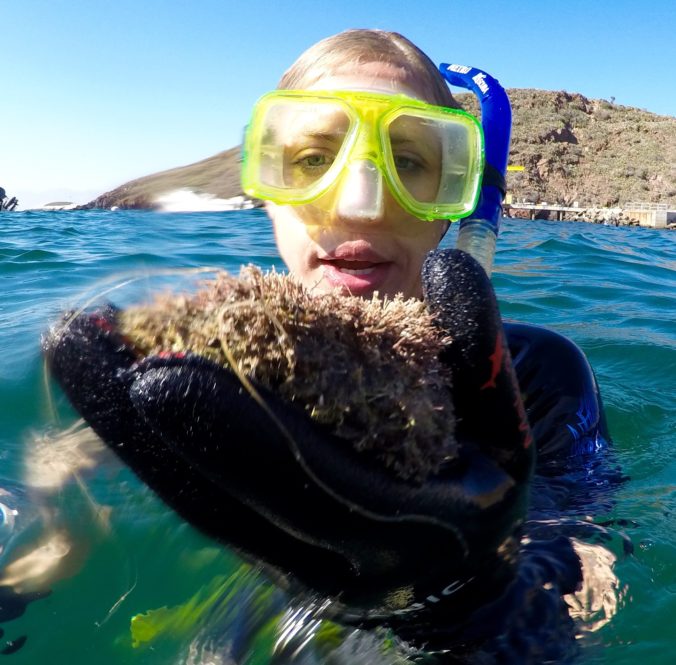
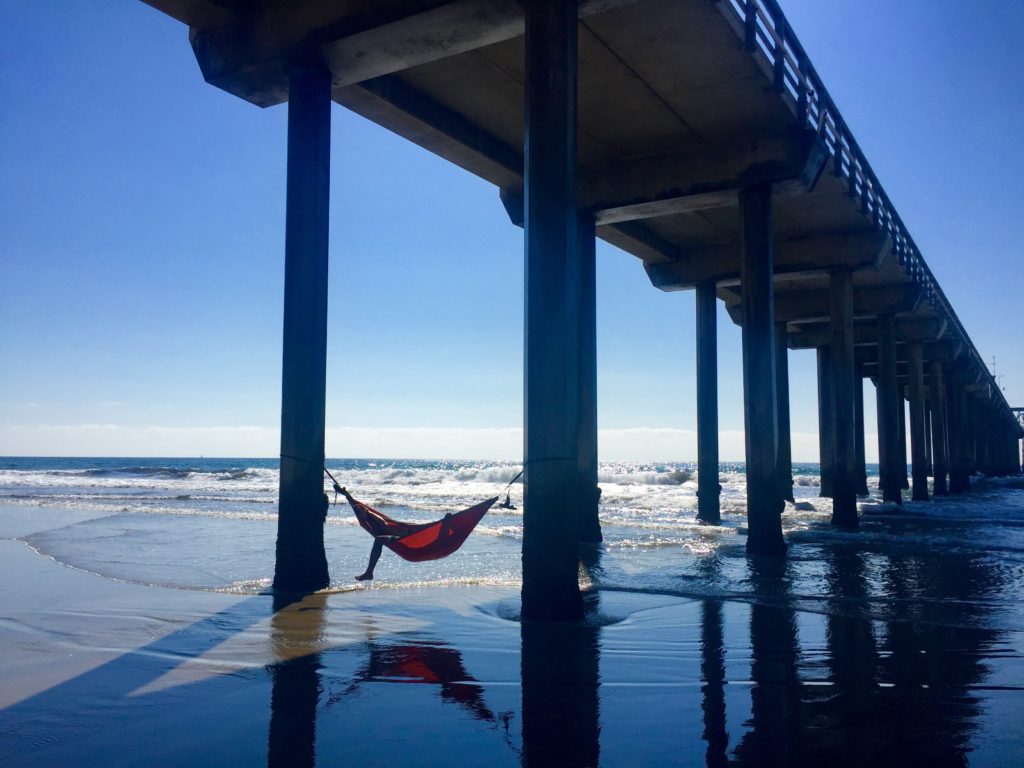
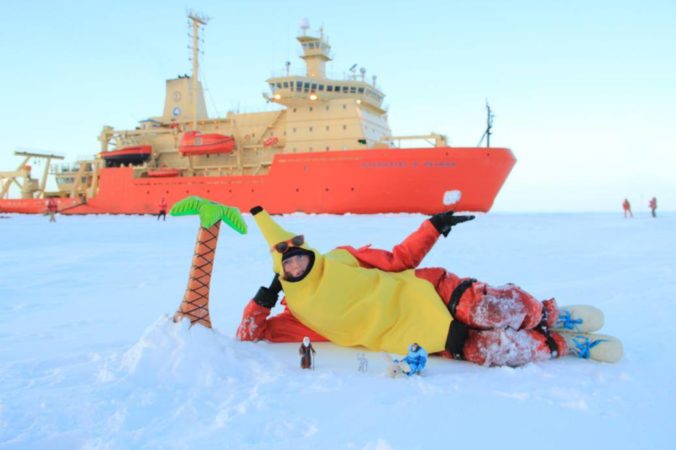











































Recent Comments